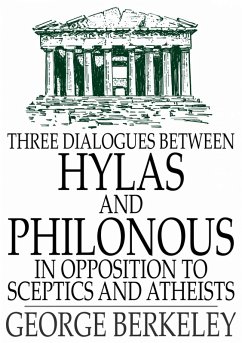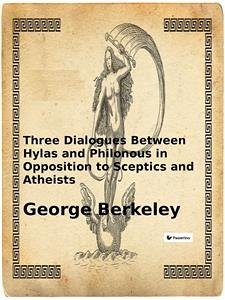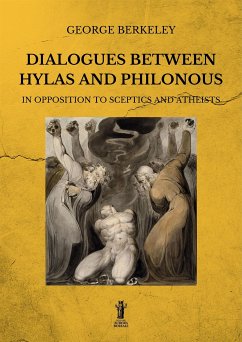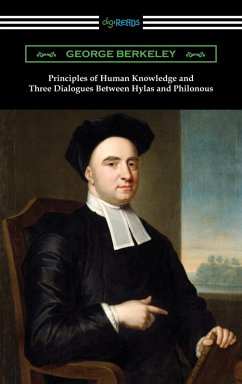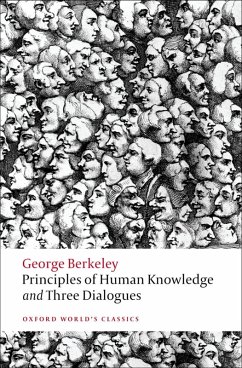
Three Dialogues Between Hylas and Philonous in Opposition to Sceptics and Atheists (eBook, ePUB)
Challenging Skepticism and Atheism Through Dialogues
Versandkostenfrei!
Sofort per Download lieferbar
0,49 €
inkl. MwSt.
Weitere Ausgaben:

PAYBACK Punkte
0 °P sammeln!
In "Three Dialogues Between Hylas and Philonous in Opposition to Sceptics and Atheists," George Berkeley presents a profound examination of epistemology and metaphysics through a captivating dialectic format. The dialogues engage two characters, Hylas, who represents materialism, and Philonous, the protagonist advocating for idealism. Berkeley'Äôs literary style is marked by clarity and philosophical rigor, employing persuasive arguments to refute sceptical and atheistic positions of his time. Set against the backdrop of the early 18th century'Äôs Enlightenment, this work serves as both a ...
In "Three Dialogues Between Hylas and Philonous in Opposition to Sceptics and Atheists," George Berkeley presents a profound examination of epistemology and metaphysics through a captivating dialectic format. The dialogues engage two characters, Hylas, who represents materialism, and Philonous, the protagonist advocating for idealism. Berkeley'Äôs literary style is marked by clarity and philosophical rigor, employing persuasive arguments to refute sceptical and atheistic positions of his time. Set against the backdrop of the early 18th century'Äôs Enlightenment, this work serves as both a defense of religious belief and a profound inquiry into the nature of reality, emphasizing the primacy of perception in the formation of knowledge. George Berkeley, an Irish philosopher, is renowned for his role in developing philosophical idealism, a theory that posits that reality is fundamentally immaterial. His experiences as a theologian and his subsequent discontent with materialist philosophies spurred him to craft this text. Influenced by the prevailing scepticism of the period, his dialogues reflect a deep-seated commitment to reconciling faith with reason, illustrating his belief that to exist is to be perceived, thus offering a robust alternative to the dominant materialist narratives. "Three Dialogues" is essential reading for anyone interested in the intersections of philosophy, theology, and literature. Berkeley'Äôs thought-provoking exchanges not only challenge the reader's assumptions about existence but also invite a deeper contemplation of the interconnectedness of perception, reality, and belief. Whether you are a seasoned scholar or a curious newcomer to philosophical discourse, this work promises to engage and enlighten.
Dieser Download kann aus rechtlichen Gründen nur mit Rechnungsadresse in A, B, BG, CY, CZ, D, DK, EW, E, FIN, F, GR, H, IRL, I, LT, L, LR, M, NL, PL, P, R, S, SLO, SK ausgeliefert werden.




